Collections
Group metrics into Collections and receive notifications when metrics alert.
Background
Collections are arbitrary groupings of metrics on which you can configure alerts.
Let’s say you have a dashboard that depends on a certain table with 10 metrics configured. You can create a collection that will alert you if any of this group of metrics goes out of bounds. Or, let's say you have 5 absolutely mission-critical metrics for your team. You can create a collection with those 5 metrics and have it @here or @oncall on your team’s Slack channel or email PagerDuty to page whoever is on call.
Creating a Collection
The simplest way to create a collection is from the collections page. You can navigate to the collections page from the top navbar. From the collections page, you can create a new collection with the Create collection button. This will open the Create collection modal, where you can enter the name and description of your collection. Once the collection is created, it will show up as a card on the collections page. You can navigate to the collection by clicking the corresponding collection card.
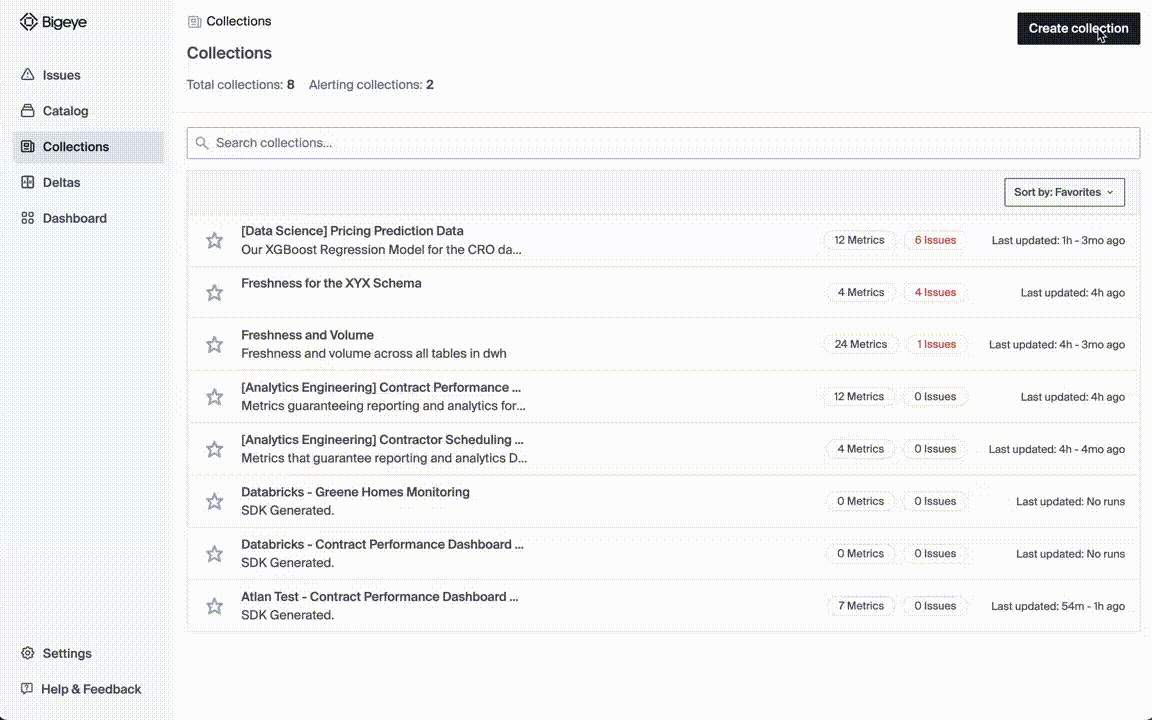
Once you navigate to the collection, there isn’t much to see because the collection is still empty. In the next section, we will learn how to add metrics to a collection.
Adding metrics to a collection
We can add metrics to the collection from the Metrics pages. From a collection page, you can navigate to metrics by clicking on the Catalog tab, then on the relevant schema/table, and then the metrics tab.
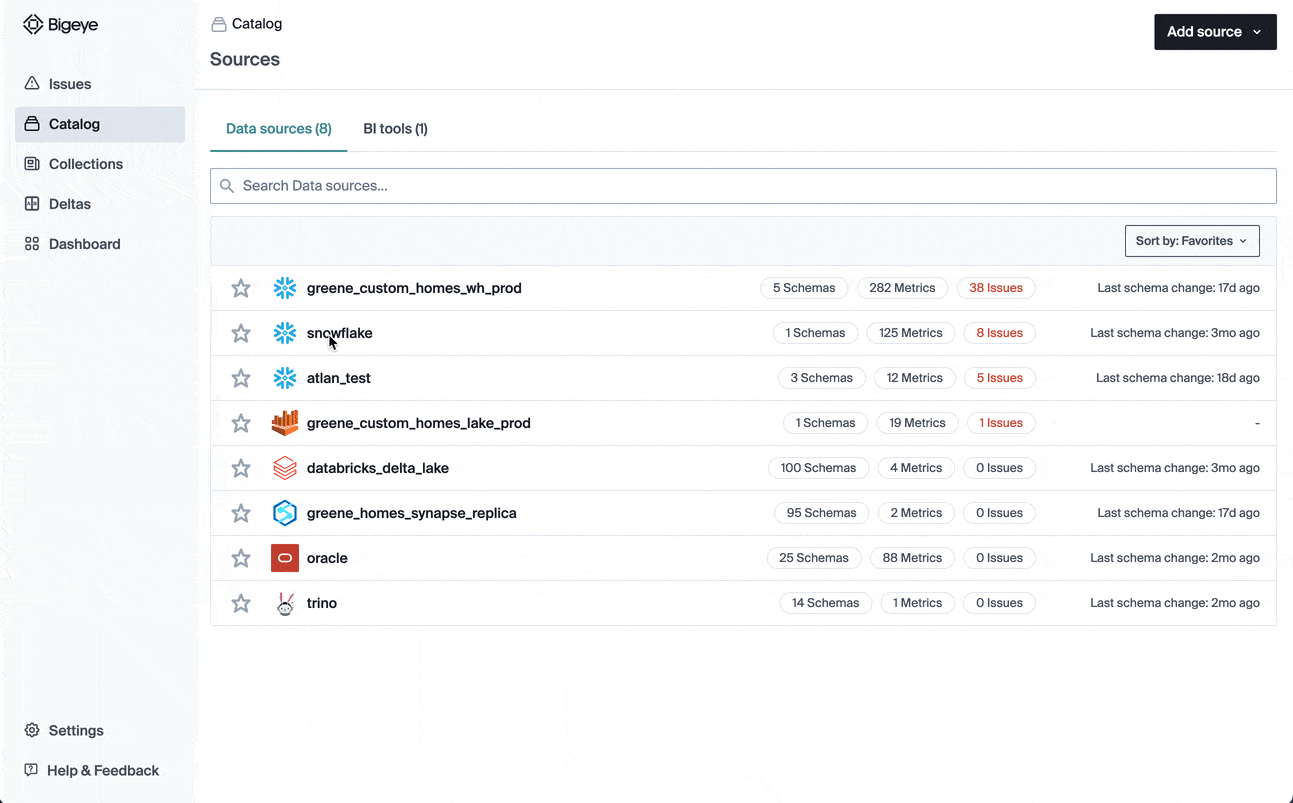
On Metrics pages, you can select one or more metrics and add them to a collection by selecting Add to collection from the Action dropdown. In this modal, we can see that the collection we created is available in the dropdown, so we select that collection.
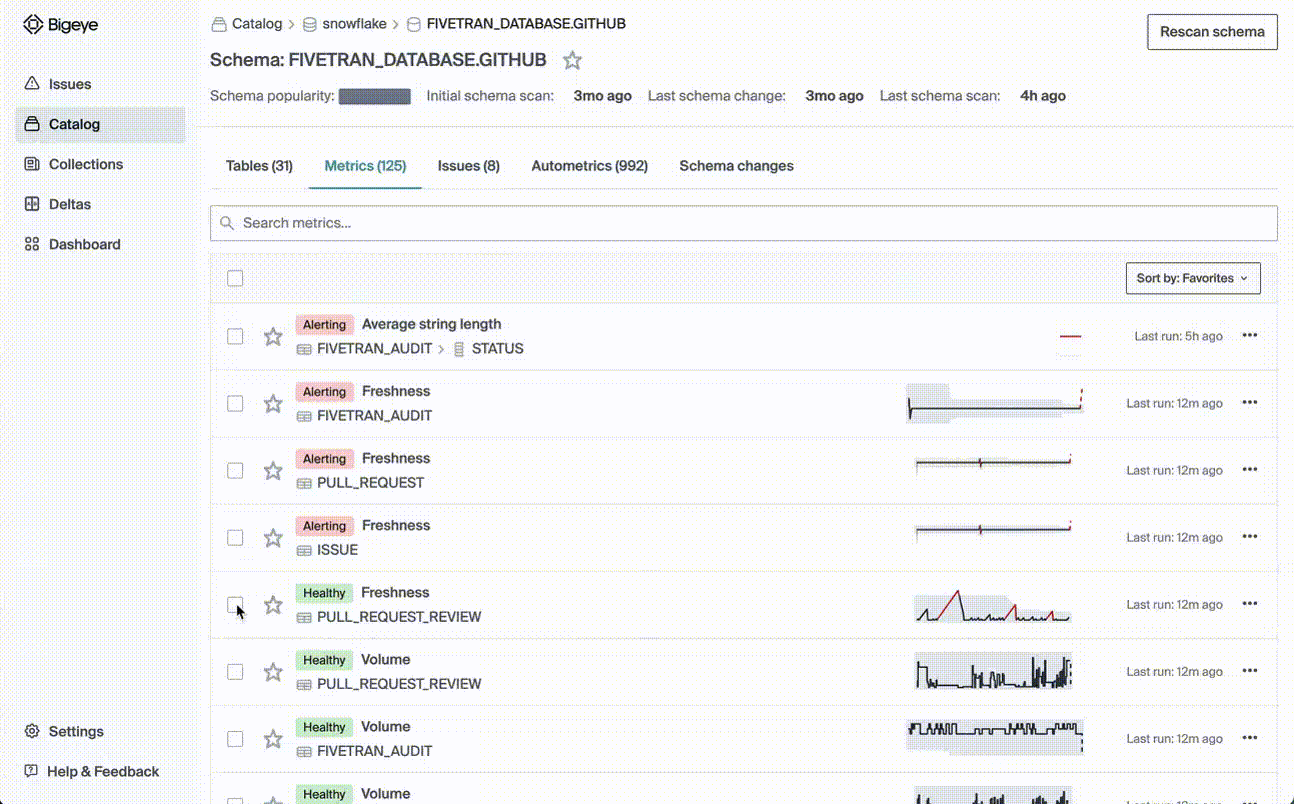
Once the metrics are added, we can quickly navigate back to the collection with the link in the success alert. You should now be able to see the metrics in the collection (you may have to refresh).
Managing a collection
Now that we have added metrics to the collection, we can see them and their status in the collection page.
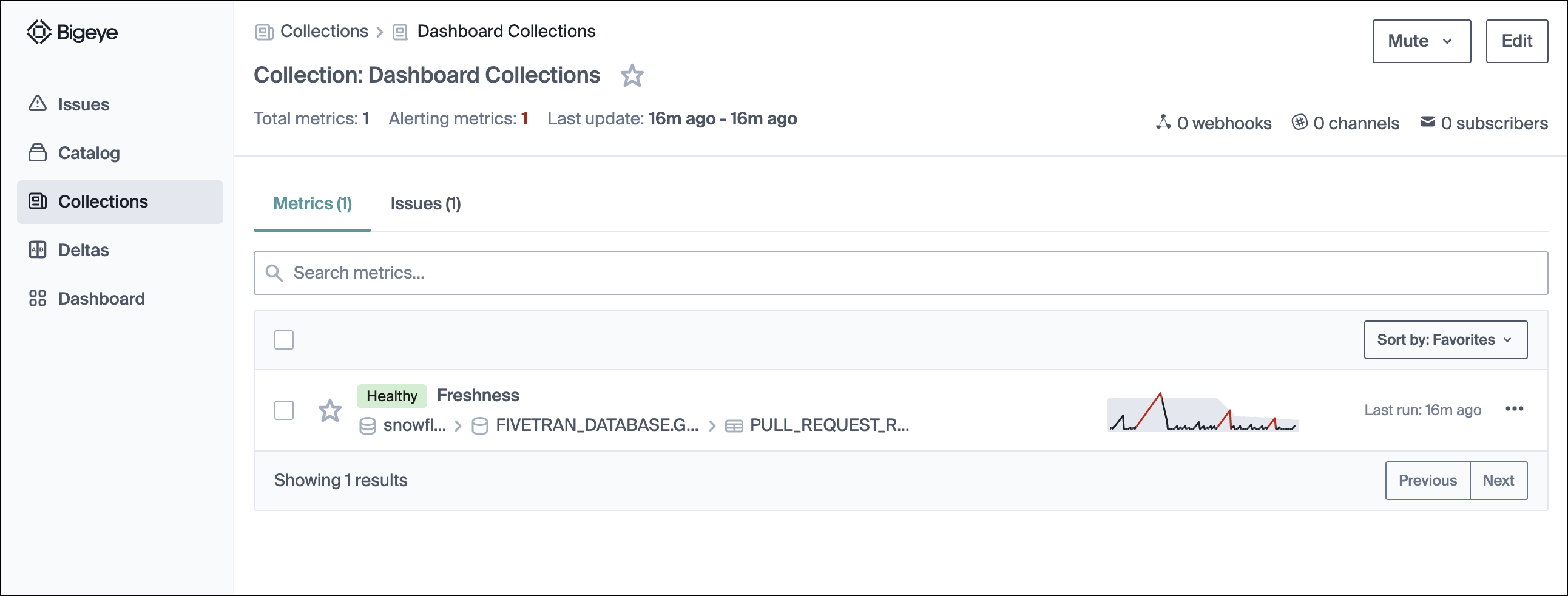
Add notifications to the collection
One of the useful functions of collections is that we can add notifications to the collection. To do this, click the Edit button and navigate to the Notifications tab in the modal that opens.
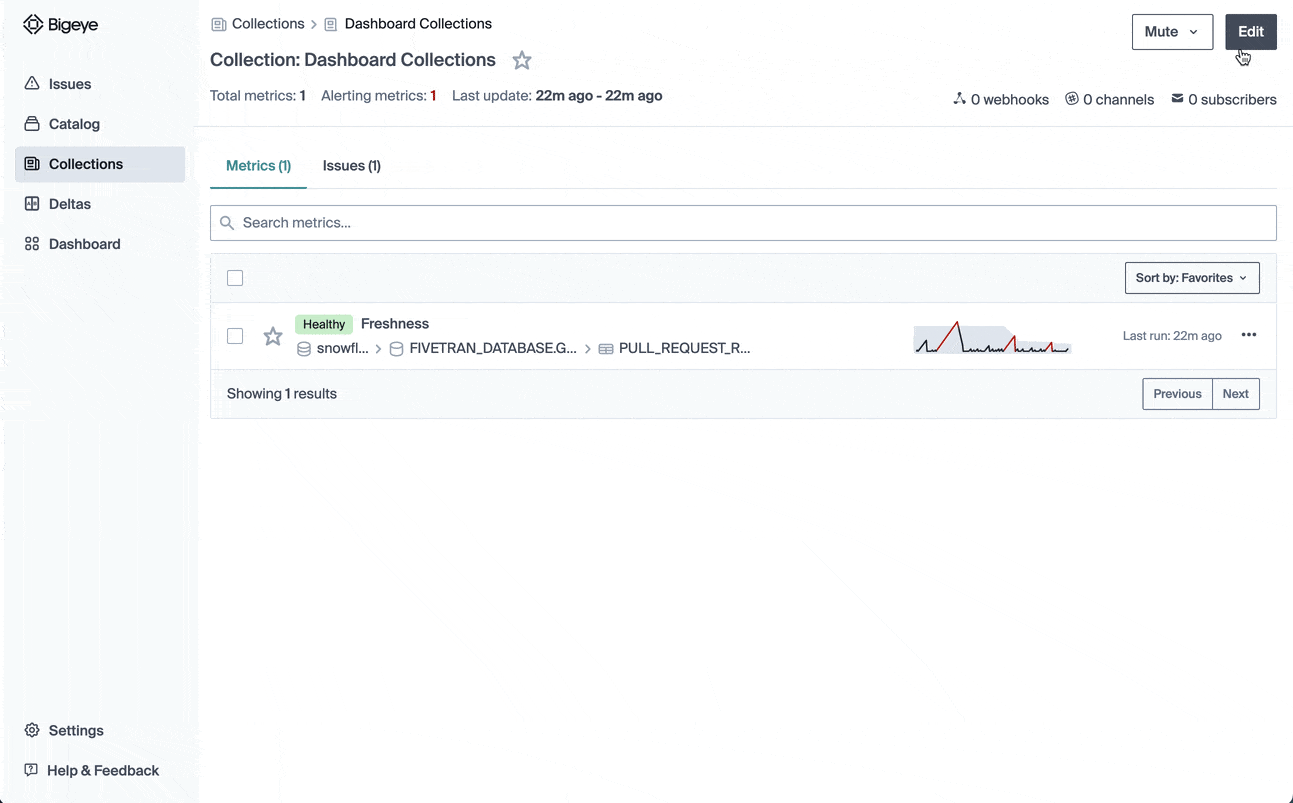
Under the Notifications tab, you can add notifications. See here how we've added an email and a Slack channel.
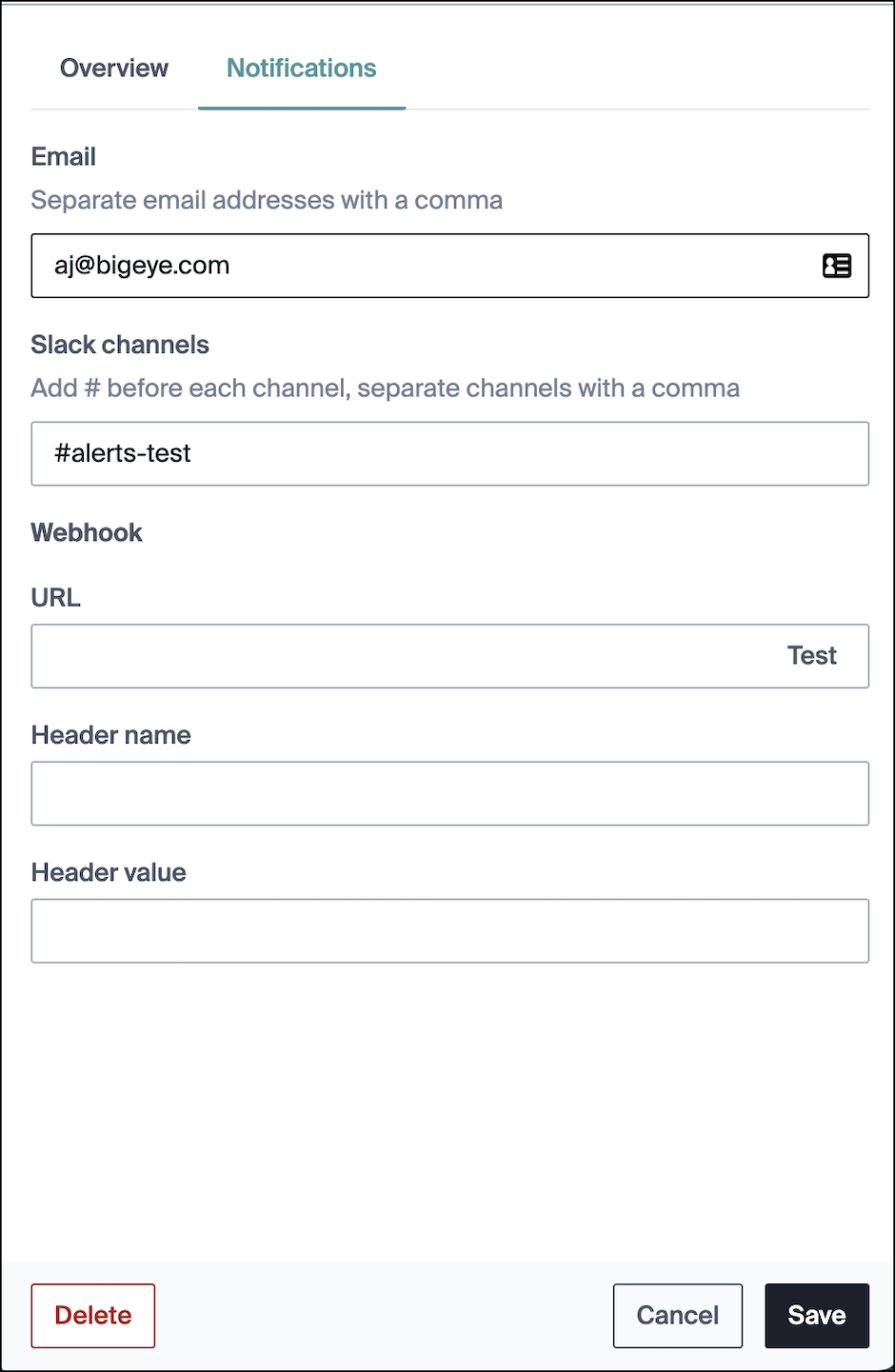
Remove metrics from a collection
To remove metrics from a collection, you can select one or more in the Collections page and then select Remove from collection in the Action dropdown menu.
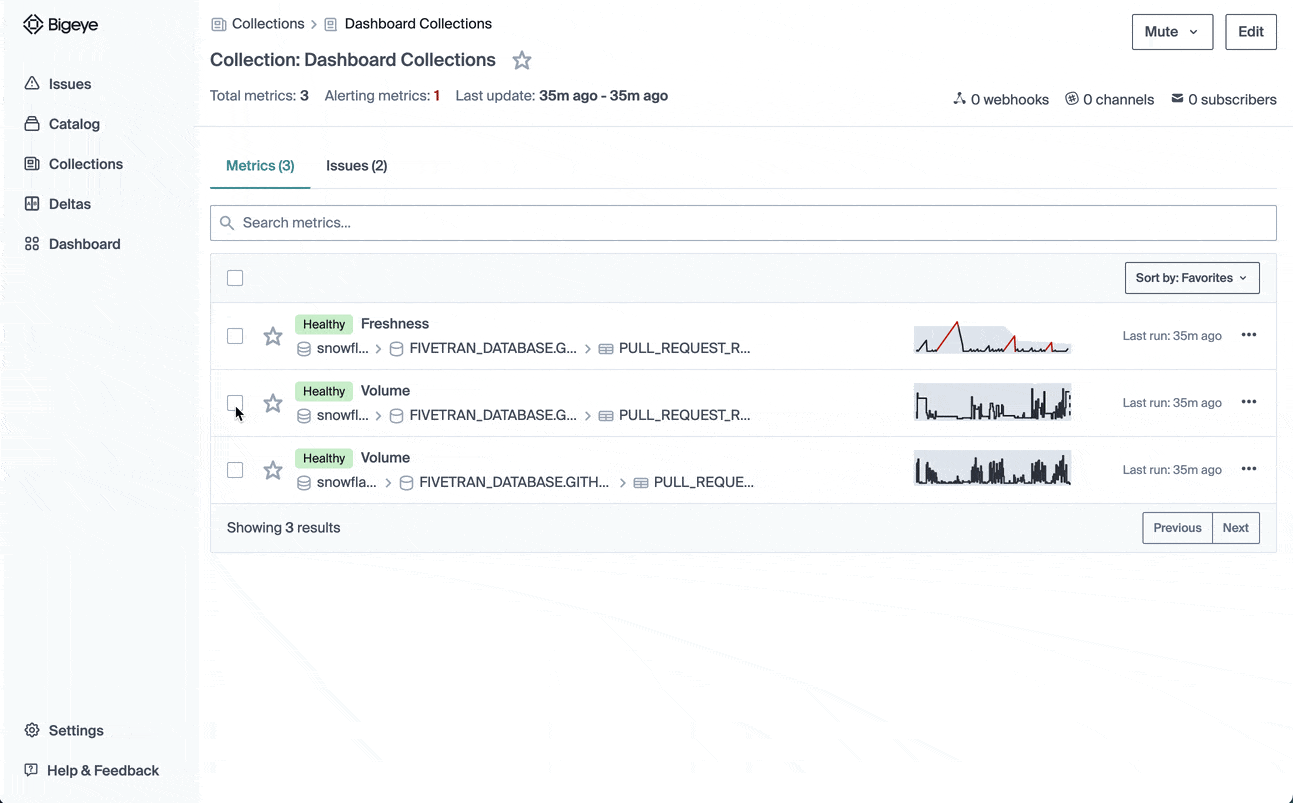
This opens a confirmation dialog, and to complete the removal, click the Remove button.
Deleting a collection
To delete a collection, click the Edit button on the collections page and then click Delete on the Edit collection modal.
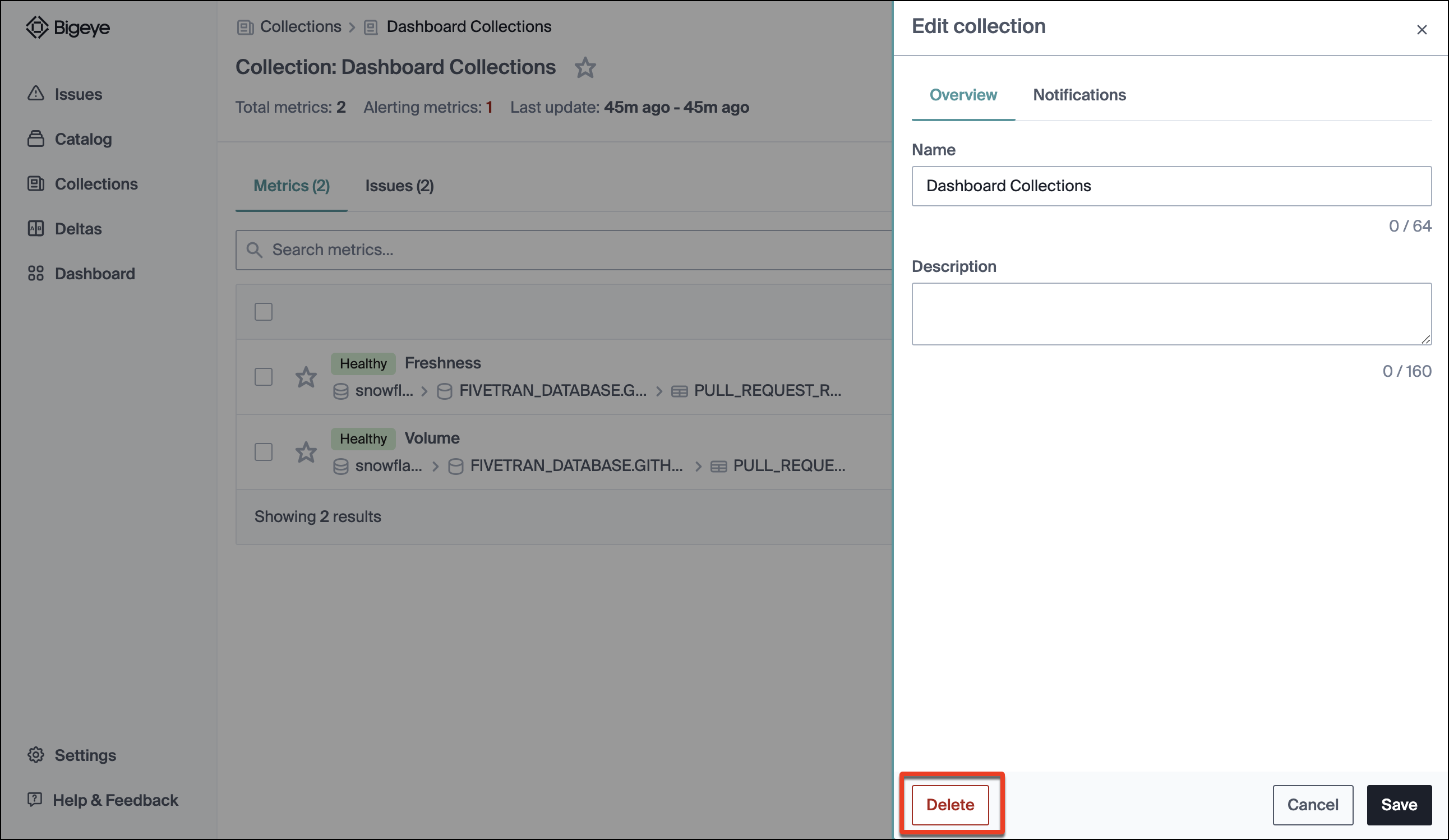
Clicking Delete will open a confirmation dialog. Click the Delete button to complete deletion of the collection.
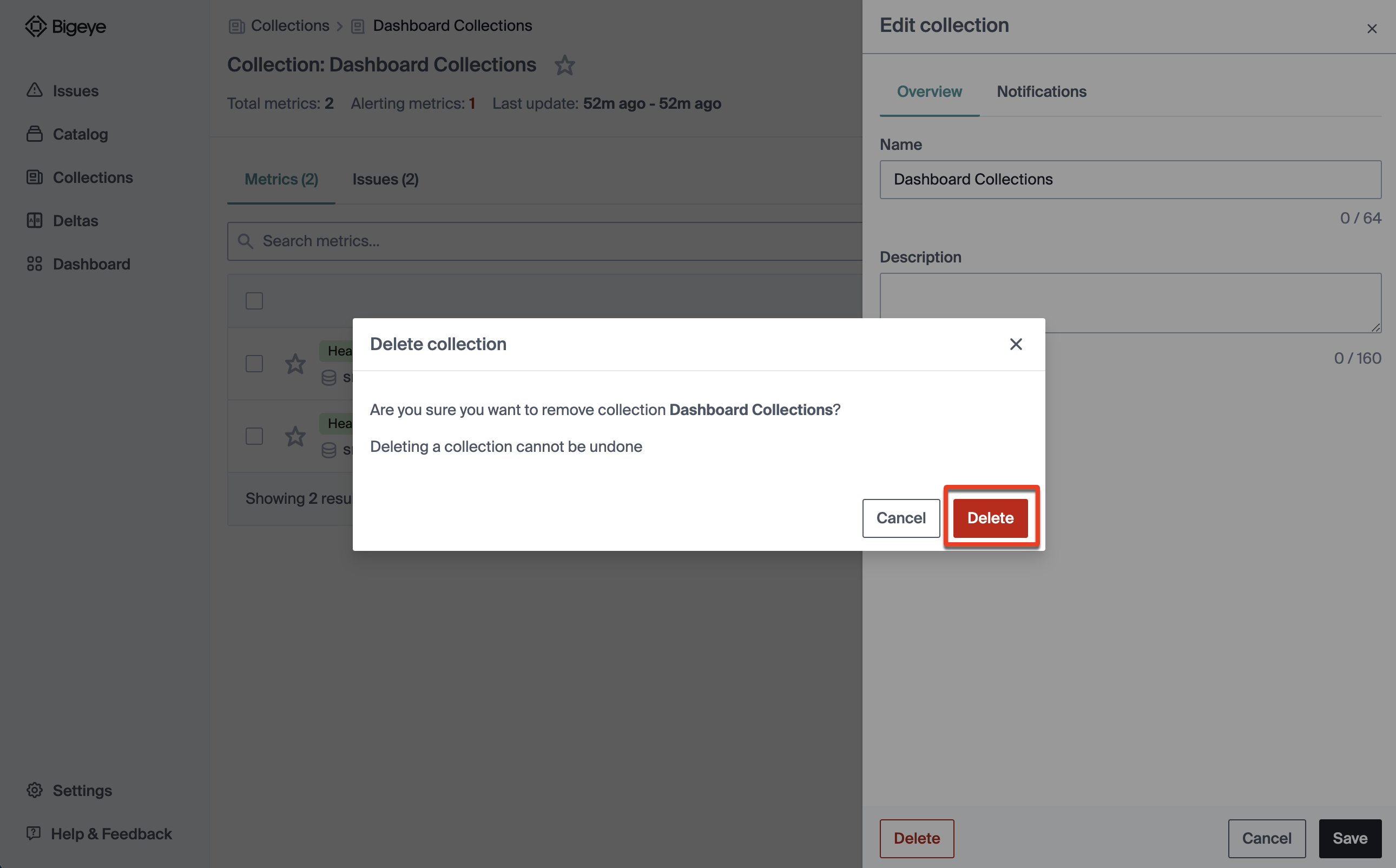
Collection notifications
When you configure notifications on a collection, they will be sent whenever a metric in the collection goes into an alerting state. These alerts are in addition to any notifications that you may have configured on the metric itself. What this means is that if you have configured an alert to email on a metric and on a collection that contains the metric, you will get two emails whenever the metric goes into an alerting state.
Remember above that we configured an email and a Slack notification on our collection. If a metric in that collection goes outside of its healthy bounds, we will get the following Slack and Email notifications:

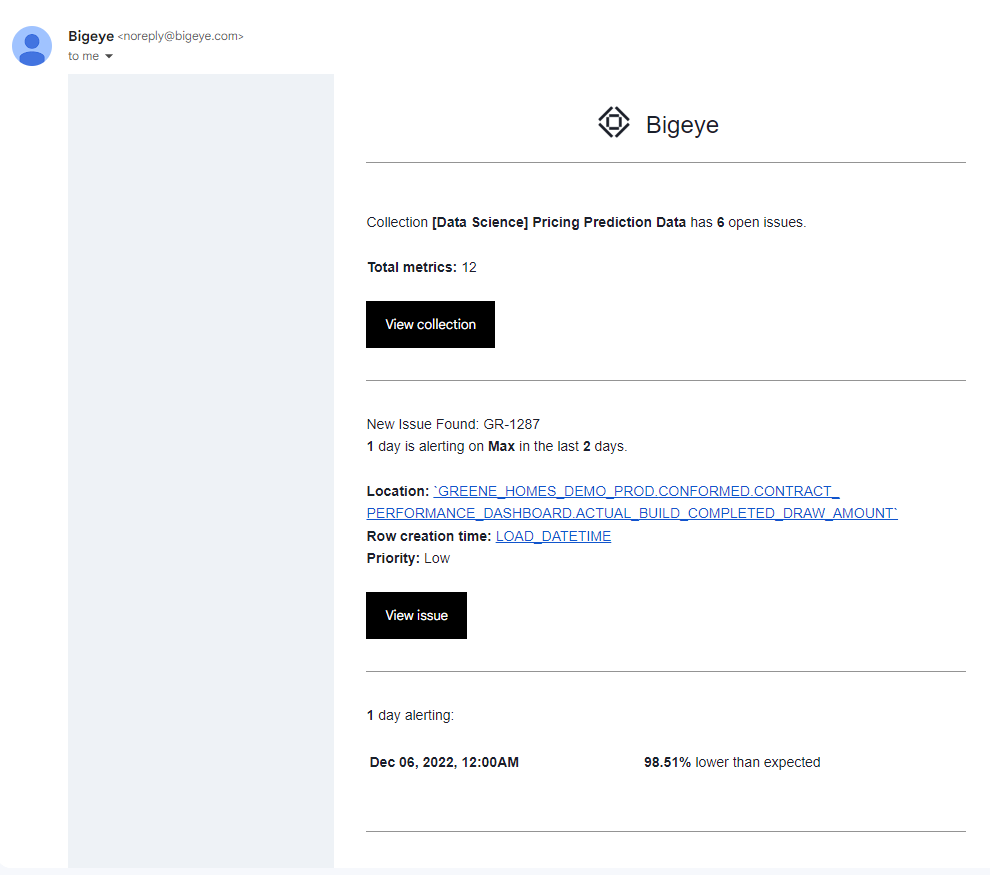
Collection notification on email
Updated 3 months ago
